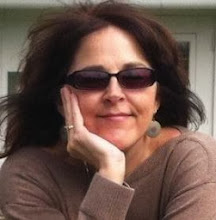Tonight I lie atop a bed with a blue flowered quilt, under a blinded window, and I’m listening to a young Van in my headphones. Irish storytelling, Irish scat, Irish famine, all wrapped up in Van’s poetics champions compose, his TB sheets, his Astrial Weeks. His is the voice I return to time and again when life wants to throw a few punches. And then when she was murdered and he hung himself, we stood, unknowing, before a diminutive Van onstage at Tanglewood—he in a brown polyester suit—and we sang his Irish songs under a clear summer night. It was August. We saw Yeats and Joyce that night on the stage, and we sang our joy, took our literature seriously. On the way home—our car windows open to the warm summer night—we had Van in our hearts. We drove with our headlights lighting up the promised highway, the night stars overhead, and the radio alive… Two joyous souls that late night in August, and our Irishman…
When we round Swan Street, we hear the urgent beeping of an answering machine from the open window two stories above. And a note from the police department asking him to call. Two people dead: a woman who loved her son and her propriety; and an elderly intellectual who had made all the decisions. Call your sister, the note reads in the thin metal mailbox. When we get upstairs, the moon looks in on us through the bay window as he dials the phone. I stand shivering and waiting and hearing Van in my head. My father killed my mother and then he killed himself, he says, after his sister had answered the phone… We sit together on the bed and wait for the dawn, too terrified to move. Waiting for the promise of a new day. And we are grateful for Van…
Years later, he would take me to a restaurant in Dublin. We order pints and sit at a small table and talk. And suddenly the table next to us—14 people in all—erupts into song. I lift my glass in joy, and he says, this is what they do. I listen… Shaw, Beckett and Wilde in their ancient voices. In Kilkenny, we stumble into a funeral and make many new friends. Paddy this and Paddy that. And their castles and their stories. Always their stories… Rock n’roll in that way….
And then there’s Paul Westerburg and The Replacements. We owe him a debt of gratitude for so many lines, but mostly for “the ones who love us least are the ones we die to please.” But that excludes too many other things. And the show in Boston—a snooty, racist town—and Paul told them so. Me, the small town girl hitching a ride, who watched the chaos unfold on stage. These were Westerburg’s bastards of young, his unsatisfied, his answering machine, his Tim. And what did I know about that—other than my own misfit, my own stifled language? What I witnessed that night onstage was transformative, was smart. And it changed me—leaving a rundown club on Boston’s southside, sweaty and spent. Alive…
It’s many summers later that I head alone to Irving Plaza where Paul performs solo, an older man and his rock n’roll songs. I am the only woman in the front—and when Paul takes the stage, the crowd begins to vibrate. I am crushed between the weight of euphoric, unleashed men who know all the words to his songs. I am afraid… And then Paul strikes the opening chords of “Unsatisfied,” and I know I can’t possibly get hurt here in this undulating crowd tonight. Because it is only rock n’ roll after all…
And you who do not understand this, so quintessentially American. I’ve seen Richard Pryor, Little Richard, Johnny Johnson, Bill Hicks, Lucille Clifton, the Pretenders, Lucinda Williams, Johnny Cash, and old pipe smoking Clarence Gatemouth Brown himself, perform. And a whole lot of other talented folks, too. Rock n’roll is a sensibility, is art. And some nights it saves us—like me here tonight, alone, in an otherwise quiet room, the night outside filled with unknowable things…
***
Subscribe to:
Post Comments (Atom)

No comments:
Post a Comment